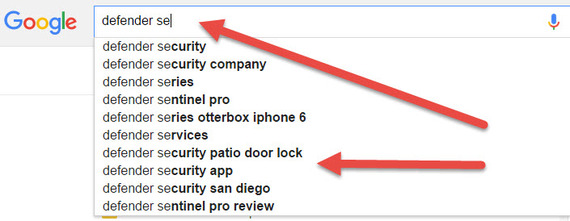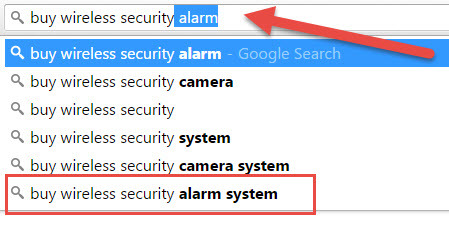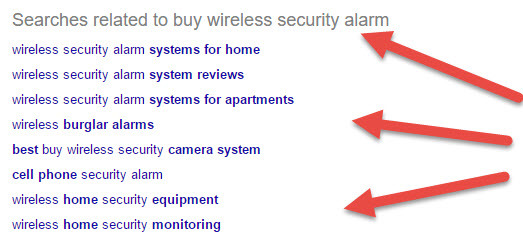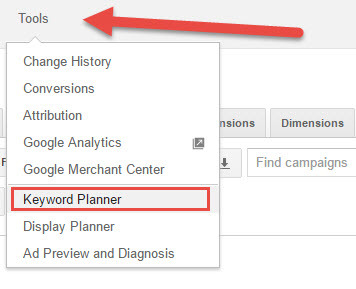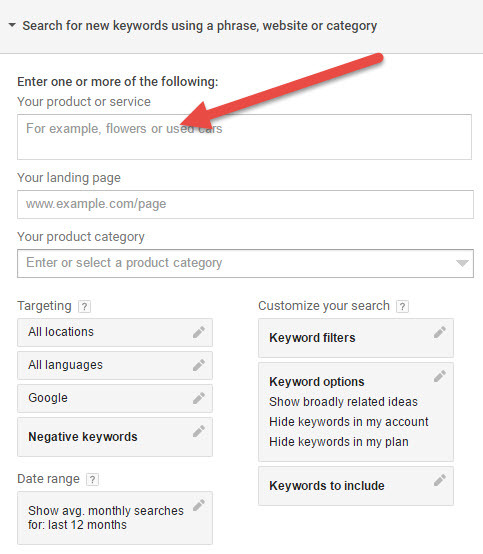Understanding the Progression of the Buyer's Mindset
People go though stages ("the customer journey") that lead to buying a product or service.
Business owners, CEOs, company executives and managers who understand this mental progression are more likely to reach the people who are ready to buy the company's products or services.
By analyzing the phenomenon that takes place in the mind of the consumer, they can specifically reach out to those people who have taken out their credit card and are, at that moment, ready to buy.
Overview and Buyer Example
What are the thought processes an online shopper goes through -- from the discovery of a problem to giving out his or her credit card number? (Important: For B2B and larger enterprises, a similar process must be followed, even if they don't always use their plastic on a first transaction basis).
Add to this the level of complexity of the various touch points when consumers also take a multi-device path to purchase.
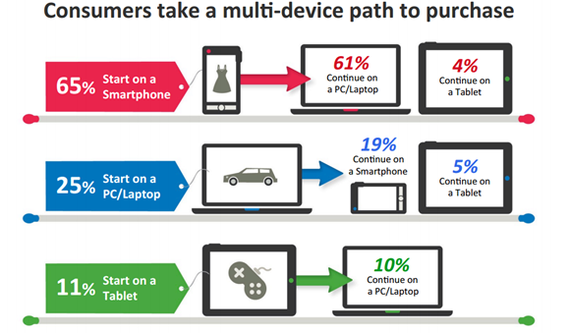
From www.dacgroup.com
What Differences Exist In Searcher Intent?
a) People who are just discovering they have a problem use different search term phrases than those who are learning how to solve their problem.
b) Likewise, once a person understands the problem and how to solve it, he leaves the learning phase and enters the in-depth analysis and buying stage.
At this point, he uses yet another set of search phrases.
Tip: Take the SEO Behavior Quiz to see if you pass the "human" keyword search evaluation.
A Business Case Scenario
Informational search
For example, the person who types "security for a commercial property" into the search box is still trying to figure out what might help him solve his theft or break in problem.
He suspects that there are many options out there but he doesn't yet know what would work best for his situation.
After doing his online research, he has gained some understanding of the security industry.
He may have learned that security cameras would help him solve his problem.
Now he needs to learn what's available in that specific area of the security world. He might type in "wired vs wireless security cameras" in order to determine which technology would work best for his building.
And, navigational search is another option. It's the notion that the searchers will enter a known brand domain (web address) or name directly into the address bar.
Product search
After doing this research, he determines that wireless is his best option. He realizes that there are several manufacturers that make wireless security cameras, so he starts comparing specific brands.
He wants to learn the different features of each model and which security camera company would be best to work with. In this stage, he'll enter brand names, such as "Defender vs. SecurityMan."
He may even use model numbers at this point. He's zeroing in on what he'll ultimately purchase.
Eventually, he narrows down his preference. He's ready to buy and has his credit card in hand.
Buyer keyword search
He'll now use a different set of search terms. These are known as the buyer's keywords.
An obvious example of a buyer's keyword is "buy {specific item}".
Other variations he may use are these: coupon for, free shipping for, on sale {product name}, discount for and others.
How to Find the Buyer's Keywords You Need
Now that you understand the types of keyword phrases that people in the last stages of the buying process type into search boxes, take the time to use the keyword tools that are available to you to uncover more buyer keywords.
There are many keyword research tools that you can pay for, but the ones listed here are free to use:
UberSuggest
One such tool is UberSuggest. It can be found at https://ubersuggest.io/.
Enter the word "coupon" into UberSuggest. You'll get a list of related keywords and long-tail keyword variations.
A term you may not have thought of is "coupon code." Also, notice "coupon deals."
Continue to enter buyer's keywords until you have a comprehensive list of term variations that will fit your product or service.
Google Auto-Complete
The auto-complete (sometimes referred to as auto-suggest) feature of Google search is a tool that many people overlook.
The ideas that it presents to you are phrases that users actually enter into the Google search box. What's more, Google looks at these terms as highly related. You want to find as many of these related search terms as you can.
Open a browser and go to google.com. In the search box, type "buy defender security systems"
You'll see "where to buy defender security systems" drop down below the search box.
This is an actual term that people have typed into the Google search box. Be sure to include the words "where to" in your buyer's keyword list. (TIP: Go back to ubersuggest and see what results you get also)
Now type in "buy wireless security." Notice that under the search box there is a list that includes "buy wireless security alarm system."
You might not have thought to include the word "alarm" in your list but Google is telling you that people include that word when they are ready to buy this particular product.
Enter a buyer's terms for your product or service in the Google search term box. Notice the variations that drop down. Add all the appropriate phrases to your buyer's keyword phrase list.
TIP: Scroll all the way down to the bottom of the search results page, and you'll see additional related keywords to review:
The Google Keyword Planner
A list of tools that you can use to find buyer keywords would be incomplete without mention the Keyword Planner tool. Just visit https://adwords.google.com and select it from the "Tools" menu:
Since Google is the most widely used search engine in the world and since the Keyword Planner is a Google keyword tool, it makes sense to spend time ferreting out buyer's keyword phrases using this software program.
Quick warning: this tool is centered around the PPC/Adwords database, but will still help in your SEO (search engine optimization) keyword research.
Follow these steps:
- Log into (or create) your Google Adwords account and choose Tools.
Notice that the results are given in two ways:
- One tab has the results in ad groups format and the other is a list of individual keyword phrases.
- Choose the "Keyword Ideas" tab to get a list of relevant search terms.
Focus in on the suggested bid prices of the keywords.
For obvious reasons, a buyer's keyword phrase tends to be more expensive than an informational phrase.
This column may be your best clue as to which keywords target people ready to buy. Sort your results by clicking on the term Suggested Bid at the top of the column.
Now you have the buyer's phrases grouped together on the screen.
You can use the Planner's download feature to collect them into an excel spreadsheet on your computer.
See the word Download above the keyword list.
Once you have the phrases into a spreadsheet, you can copy and paste them into your pages' keyword meta tag field.
You can also print out the spreadsheet, or part of the sheet, and check them off the keyword phrases as you use them in the web page's content.
Learn more about how to use content and keywords to rank in Google.
Conclusion
It's important to understand that people enter different search phrases when they're at different stages in the learning and buying process.
Phase 1 - Understanding
First, they are trying to understand the problem they have. After researching the issue, they come to understand it.
Phase 2 - Opportunities
With that information, they start zeroing in on specialized solutions. During this stage, they become aware of specific products and services that can help them. They look at reviews and comparisons and study the features.
Phase 3 - Selections
Finally, they decide on the exact product or service they want and they are ready to buy.
A company's marketing team must realize the value of moving past the general informational articles with their associated keyword phrases.
The goal is to make sales!
Therefore, a thriving business must become proficient in developing articles, resources and advertisement that match the terms that people use when they are ready to buy a specific product or service. And, work on building sales scripts and audit your process from first touch to last touch (that includes your call center).


